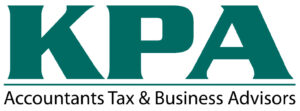Business Structuring
How To Structure Your Business
Whether you are starting a new business or already operate a business it is never too late to consider the business structure that is most suited to your circumstance.
Following Business Structures are available:
Sole Trader: Is the simplest structure that is available. This structure involves one individual who owns and operates the business. In this structure both the expenses are noted on your tax return. The liabilities in this structure are not limited and the the operator of the business is exposed to all risk from the business.
Partnership: A partnership is two or more people or entities who do business as partners or receive income jointly. In a partnership, control or management of the business is shared. A partnership is not a separate legal entity so you and your partners are liable for all debts and obligations of the business. A formal partnership agreement is common, but not essential.
Joint Venture: A joint venture is two or more people or entities who join to do business together for a particular purpose, usually a single project, rather than as an ongoing business. A joint venture will often have a joint venture agreement.
Trust: A trust is an obligation imposed on a person, the trustee, to hold property or assets (e.g. business assets) for the benefit of others (known as beneficiaries). Setting up a trust requires a formal deed, as well as the completion of yearly administrative tasks. If you operate as a trust, the trustee is responsible for its operation. Using a trust structure for your business may have tax advantages.
Company: A company is a separate legal entity. This means it has the same rights as a natural person and can incur debt, sue and be sued. The company’s owners (called ‘members’ or ‘shareholders’) can limit their personal liability and are generally not liable for company debts (unless they give personal guarantees to borrow money). Companies are taxed at a different rate.
A company is a complex business structure, with higher set-up and administrative costs. Companies must be registered with ASIC, and company officeholders have legal obligations under the Corporations Act.
Contact us to discuss which of the above structure might be suitable to your unique circumstances.
Accounting and Bookkeeping
We provide complete solutions to accounting and bookkeeping needs including business software selection
Goods and Services Tax (GST)
Advice with regards to GST and Preparation and Lodgment of Business Activity Statements (BAS).
Business Startup and Registration
Registration of various business entities such as Sole Trader, Partnership, Trusts and Companies
Business Structuring
Taxation and Accountancy advice regarding structing of business to achieve better taxation and accounting outcomes for clients
Tax Returns
Preparation and lodgment of Individual, Rental Property, Business and SMSF Tax Returns.
Self Managed Superannuation Fund (SMSF)
Preparation of SMSF Financials and compliance audit with taxation advice to achieve better taxation outcome.
